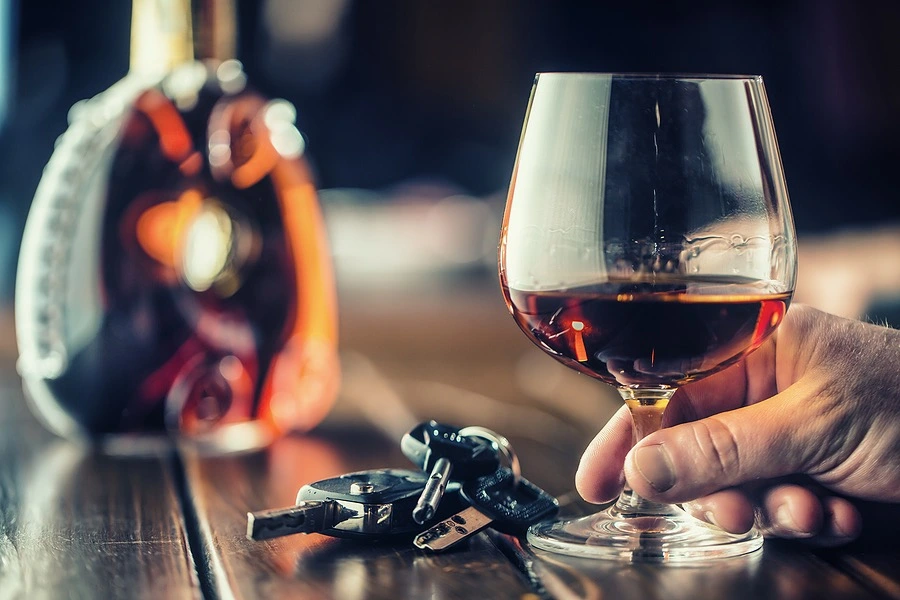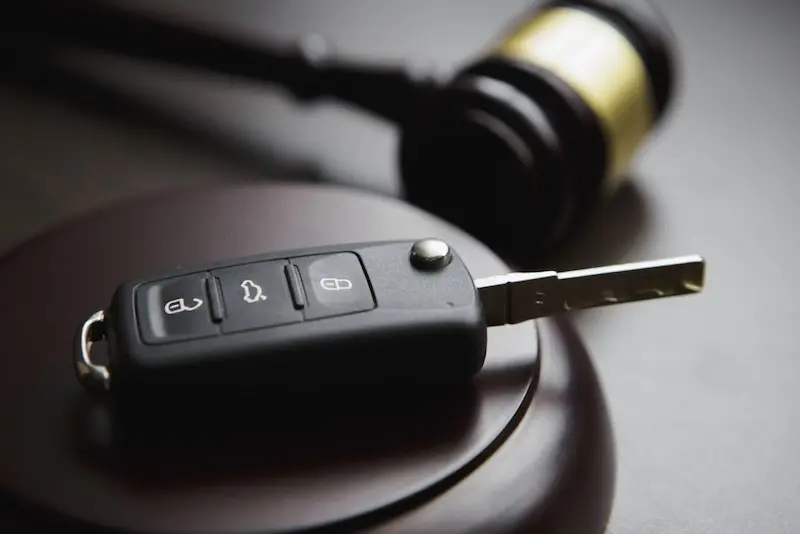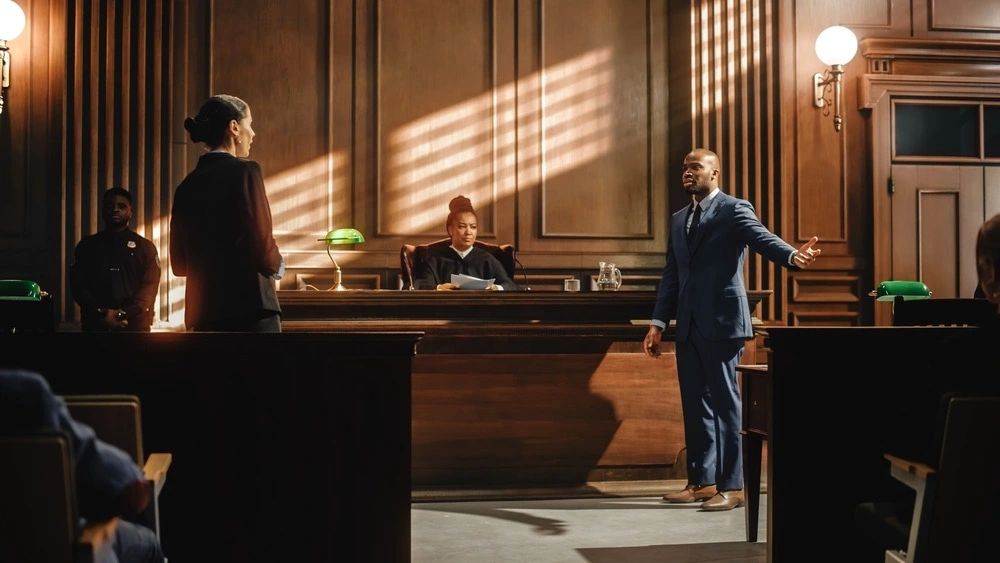Understanding the Consequences of a Third DUI in Florida
Imagine facing your third DUI in Florida, knowing the severity and life-altering consequences that come with it. The anxiety and uncertainty are overwhelming, but there’s still hope. Let’s explore how understanding the complexities of this offense, hiring an experienced DUI attorney, and navigating the legal system can make all the difference.
Key Takeaways
- Third DUI offenses in Florida carry severe penalties, including fines up to $5,000 and potential jail time.
- Engaging a knowledgeable DUI attorney is essential for navigating the complexities of a third DUI case.
- Building an effective defense strategy requires close examination of evidence and understanding program requirements to reduce or dismiss charges.
The Severity of a Third DUI Offense in Florida

A third DUI offense in Florida carries serious repercussions that can have an immediate and substantial impact on one’s personal life, ability to work, and family’s well-being. The penalties and consequences depend on whether the third offense occurred within or outside 10 years of any prior DUI conviction. Florida law classifies a third DUI within 10 years of a second DUI as a third-degree felony, with even more severe penalties than a misdemeanor DUI.
The driver’s license will be revoked for a period of ten years, and the individual must complete DUI school and remain in the DUI supervision program for the duration of the revocation. The penalty for a third DUI conviction is severe. Even if the third offense happened more than 10 years after the previous one, the maximum jail sentence can’t reach beyond 12 months..
Given the high stakes, it’s vital to comprehend the differences between felony and misdemeanor charges, including the associated penalties.
Felony vs. Misdemeanor DUI
In Florida, driving under the influence for a third time is aggressively prosecuted. It is generally classified as a misdemeanor. If an individual commits a DUI within 10 years of the first one, then it constitutes a third-degree felony. This is considered much worse than a second DUI. The distinction between a felony and misdemeanor third DUI offense lies in the severity of the penalties. A third DUI charged as a misdemeanor may not require any minimum jail sentence, while a third DUI charged as a felony mandates a minimum sentence of 30 days in jail. The prosecutor has the discretion to determine whether the offense is charged as a felony or a misdemeanor, based on the timing of any prior conviction within the past ten years, which can lead to a third conviction.
The consequences of a third DUI conviction as a felony are significantly more severe than those of a misdemeanor conviction. For instance, a felony DUI conviction may result in a longer jail time, higher fines, and more stringent probation conditions. Knowing the factors that dictate if a third DUI is classified as a felony or misdemeanor is key to effectively navigate the legal process and build a robust defense.
Penalties for a Third DUI Conviction
The penalties for a third DUI conviction in Florida include both criminal and administrative consequences. The driver’s license will be suspended for a period of ten years. To reinstate the license, the offender must complete the multi-offender Level II DUI School and participate in the DUI supervision program for the duration of the revocation period. A third DUI conviction will incur a minimum fine of $2,000. Maximum fine of $5,000 can be imposed by the court. The fine for a DUI offense can’t be less than $4,000 if the BAC level is 0.15 or greater, or if a minor is in the vehicle. Such an offense is enhanced in these cases.
A third DUI offense carries a maximum sentence of one year in jail. Moreover, the court may impose this sentence as part of the ruling. An ignition interlock device must be installed and maintained in a vehicle for two years after a third DUI conviction in Florida. Dealing with these penalties and requirements can prove daunting – having a seasoned DUI attorney to guide you through the process and champion your case can be invaluable.
Strategies to Avoid Jail Time After a Third DUI

Avoiding or minimizing jail time after a third DUI is often a top concern for those facing these charges. Engaging a knowledgeable DUI attorney can ensure that all legal rights are protected and that the most favorable outcome is achieved. A skilled attorney can also assist in negotiating plea bargains and alternative sentencing options that may reduce or eliminate jail time.
For example, enrolling in an inpatient treatment program can demonstrate to the court that the defendant is taking proactive measures to address their alcohol use and is committed to implementing positive changes, which may help lessen or avoid jail time. Participating in alcohol treatment programs and installing an ignition interlock device can also show the court the defendant’s willingness to address their alcohol use and make positive changes, potentially reducing or eliminating jail time.
Being aware of the available strategies and collaborating with a skilled attorney to maneuver the legal process is key to mitigating the effects of a third DUI conviction.
Plea Deals and Alternative Sentencing
Plea deals are legal agreements between the defendant and the prosecutor, where the defendant pleads guilty to a lesser charge in exchange for a reduced sentence or other concessions. The types of plea deals available vary depending on the jurisdiction and the specifics of the case but may include reduced charges, reduced sentences, or other concessions such as probation or community service.
Alternative sentencing is a form of punishment aimed at providing rehabilitation rather than traditional incarceration. This can involve:
- Community service
- Drug treatment
- Counseling
- Restorative justice programs
These alternative forms of sentencing aim to address the underlying issues that led to the criminal behavior and help individuals reintegrate into society.
Plea deals and alternative sentencing can provide the defendant with the opportunity to plead guilty to a lesser charge or receive a reduced sentence, as well as the potential to receive rehabilitative treatment that may help them avoid future DUI convictions.
Importance of Legal Representation
Engaging a seasoned DUI attorney is fundamental in dealing with the complexities of a third DUI case. An attorney can:
- Question the accuracy of the devices used for testing
- Challenge the evidence against you
- Guide you through the intricate legal process
- Protect your rights
- Work to lessen the penalties and consequences associated with a third DUI conviction.
Working with the prosecution to explore potential plea deals or alternative sentencing could lead to reduced penalties and consequences associated with a third DUI conviction. By analyzing the evidence against you, assessing scientific evidence, and developing a comprehensive defense plan, a DUI attorney can safeguard your rights and reduce the consequences of a third DUI conviction.
Common Defenses for a Third DUI in Florida

An assertive defense strategy is critical when confronting a third DUI charge. To build a comprehensive defense, all aspects of the case, including the traffic stop, roadside investigation, arrest, and testing, should be thoroughly examined. Close scrutiny should be given to scientific evidence such as breath or blood test results. Failing to do so may lead to unreliable outcomes. By questioning the officer’s investigation, evaluating the state’s evidence, and exploring other defense strategies, you can mount a robust defense against a third DUI charge in Florida.
Uncovering potential flaws in the officer’s DUI investigation, inadequacies in testing procedures, or improper calibration of breath testing machines can render the results untrustworthy and inadmissible in court. Challenging the officer’s investigation, disputing the state’s evidence, and investigating alternative defense strategies may result in a more favorable outcome for the defendant.
Challenging the Officer’s Investigation
Probable cause is required for a DUI arrest, necessitating objective evidence that provides an officer with a reason to suspect the driver may be intoxicated, such as the odor of alcohol, red eyes, or failed field sobriety tests. An officer must have a valid reason to stop a vehicle, such as a traffic violation or an unsafe maneuver.
If the officer arrested someone for DUI without probable cause, any information or evidence obtained after the DUI arrest may be suppressed, depriving the prosecutor of crucial evidence and potentially leading to a dismissal of the case.
A DUI attorney can provide the following services:
- Thoroughly examine the arresting officer’s report and any video footage of your stop and arrest to confirm accuracy
- Verify the credentials of the person who conducted your blood or breath test to ensure certification and proper protocols were followed
- Review the qualifications of the officer to guarantee that all processes were valid and correctly done
Questioning the State’s Evidence
The state’s evidence may have deficiencies in testing protocols or incorrect calibration of breath testing machines. Flaws in testing procedures may include incorrect sample collection, improper storage of samples, or incorrect testing methods. Incorrect calibration of the machine, its sensors, or its software are all potential examples of improper calibration of breath testing machines.
Identifying weaknesses in the state’s evidence and challenging their validity in court can significantly impact the outcome of a third DUI case. A knowledgeable DUI attorney can assist in evaluating and contesting the scientific evidence, potentially leading to a dismissal or reduction of charges.
Other Defense Strategies
Inadequate documentation of previous DUI convictions may present a problem for the prosecutor and could lessen the gravity of the current charge. Prior DUI convictions, as well as other prior convictions, may impede the ability to elevate current charges to a third DUI. The absence of legal counsel in prior DUI cases could present a challenge for the prosecutor, as they may not be able to draw upon the prior conviction in the current case.
Exploring additional defense strategies, such as prior DUI convictions without adequate documentation or the absence of legal counsel in previous cases, may result in a more favorable outcome for the defendant. A skilled DUI attorney can investigate these alternative defenses to build a robust case on your behalf.
Hiring an Experienced DUI Attorney for a Third DUI in Florida

If confronted with a third DUI in Florida, it’s paramount to engage a seasoned DUI attorney. Meltzer & Bell, P.A., a pioneering criminal defense firm, is dedicated to treating you with empathy and providing the highest degree of professionalism and vigorous defense. With decades of combined experience in DUI and criminal trial work, Meltzer & Bell, P.A. has successfully represented countless clients in Florida.
By choosing Meltzer & Bell, P.A., you’ll benefit from:
- Unique 24/7 access to the firm’s partners, ensuring ready legal defense even at night, on weekends, and on holidays
- Their comprehensive library of legal pleadings, documents, and motions
- Access to the latest and most advanced evidentiary presentation options
All of these resources will be at your disposal to build a strong defense for your case.
Evaluating Scientific Evidence
Scientific evidence is of paramount importance in a third DUI case, as it is used to substantiate the defendant’s guilt or innocence and can be utilized to counter the prosecution’s case. Having an attorney with expertise in this area is critical, as they can assess the facts and evidence presented in the case and devise an effective plan. Additionally, they can question the accuracy of the blood alcohol content (BAC) evidence through expert analysis and questioning.
To evaluate scientific evidence for a third DUI in Florida, some strategies include:
- Analyzing all aspects of the case
- Consulting with a knowledgeable DUI defense attorney who can assess the facts and create an effective strategy
- Contesting the BAC evidence through expert analysis and questioning its accuracy or reliability
These strategies can assist in evaluating and contesting the scientific evidence in a third DUI case in Florida.
Building a Comprehensive Defense Strategy
A DUI attorney can provide the following services:
- Thoroughly examine the arresting officer’s report and any video footage of your stop and arrest to confirm accuracy and identify any fabrications or exaggerations.
- Verify the qualifications of the officer or person who took your blood or breath test to ensure they were trained correctly.
- Ensure that relevant protocols were followed during the testing process.
By analyzing the evidence against you, assessing scientific evidence, and developing a comprehensive defense plan, a DUI attorney can safeguard your rights and reduce the consequences of a third DUI conviction. Working with the prosecution to explore potential plea deals or alternative sentencing could lead to reduced penalties and consequences associated with a third DUI conviction.
Navigating the DUI School and Supervision Program Requirements

To regain your license after a third DUI offense in Florida, completion of the DUI school and the DUI supervision program is mandatory. This entails abstaining from alcohol and adhering to the program’s stipulations. The exact requirements of the DUI school and supervision program may differ depending on the individual case and the court’s directives, but it’s essential to comply with these requirements to ensure a hardship reinstatement.
Failing to comply with the DUI school and supervision program requirements can result in the suspension or revocation of your license and further criminal sanctions. It’s vital to seek advice from a DUI attorney or the Florida Department of Highway Safety and Motor Vehicles to be fully aware of all the requirements and potential consequences of not fulfilling the DUI school and supervision program.
DUI School Completion
In order for the driver’s license to be reinstated, the DUI school must be completed. The exact requirements of the DUI school may differ depending on the individual case and the court’s directives, but generally, the driver must attend a DUI school approved by the Florida Department of Highway Safety and Motor Vehicles and complete the program within the allotted time period.
If the driver neglects to comply with the DUI school requirement within the prescribed period, their driver’s license will not be restored, and they may encounter supplementary sanctions, such as imprisonment or fines.
It is imperative to consult with a DUI attorney or the Florida Department of Highway Safety and Motor Vehicles to ensure that the driver is cognizant of all the requirements and consequences of not completing the DUI school.
DUI Supervision Program Participation
Participating in the DUI supervision program is a crucial requirement for obtaining a hardship reinstatement after a third DUI conviction in Florida. To participate, you must fulfill the requirements of completing DUI school and adhering to the program for the duration of the license revocation period. Additionally, you may be obligated to partake in an inpatient treatment program.
Adhering to all the criteria established by the DUI supervision program is essential to ensure a hardship reinstatement and obtaining a hardship license. Failure to comply with these requirements can result in the suspension or revocation of your license and further criminal sanctions.
It’s crucial to consult with a DUI attorney or the Florida Department of Highway Safety and Motor Vehicles to ensure that you are aware of all the requirements and consequences of not participating in the DUI supervision program.
Summary
In conclusion, facing a third DUI in Florida is a daunting challenge with severe consequences. Understanding the complexities of the offense, hiring an experienced DUI attorney, and navigating the legal system can make all the difference. From building a strong defense strategy to complying with DUI school and supervision program requirements, taking a proactive approach and seeking professional guidance can help mitigate the impact of a third DUI conviction on your life.
Frequently Asked Questions
How long do you go to jail for a third DUI in Florida?
If convicted of a third DUI within 10 years in Florida, you face up to 5 years in prison and/or a $5,000 fine.
How long do you lose your license for 3rd DUI in Florida?
You will lose your license for 10 years if convicted of a 3rd DUI in Florida.
What is the difference between a felony and misdemeanor third DUI offense in Florida?
A third DUI offense in Florida is a misdemeanor, but if it occurs within 10 years of the second offense, it is upgraded to a felony with harsher punishments.
